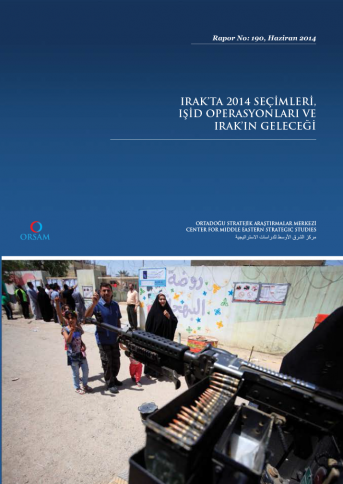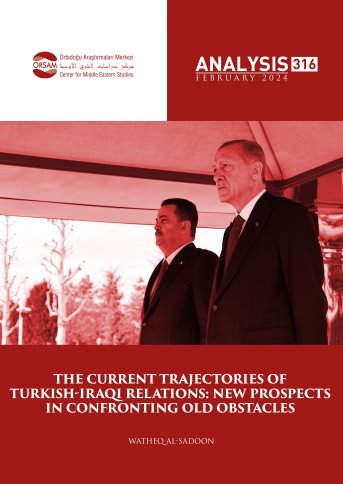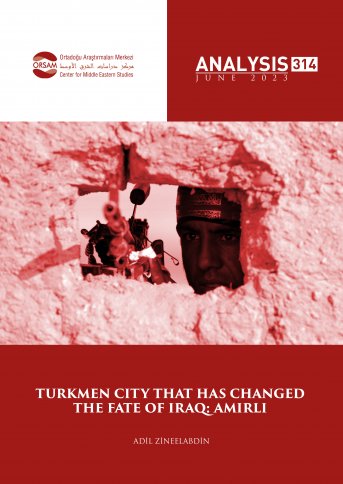
The 2014 Elections, ISIS Operations and the Future of Iraq
Iraq, which was at the center of regional problems in the Middle East politics after the Cold War, was overshadowed by the Syrian crisis that erupted in 2011. Iraq once again has come to the forefront of the regional and international agenda due to several factors, namely the political ambiguity after the 30 April 2014 elections, the sudden advance of the Islamic State of Iraq and Syria (ISIS) towards Mosul, ISIS’s control in the Sunni regions and its activities in Kirkuk, Diyala and Baghdad.
This study aims to become a reference source for those seeking to understand the current situation in Iraq. It analyzes the political situation in Iraq before the elections, the election results and ISIS’s June offensive. Then the report analyzes the background conditions, i.e., the political situation before the elections, as well as their impact on the elections process and the current situation characterized by the ISIS’s June offensive. Finally, the report concludes with the short, medium and long term projections about the situation in Iraq and the scenarios regarding the future of Iraq.
This report is based on an analysis of the literature, the field trips by ORSAM researchers and the analysis of the results of the workshop, “The Future of Iraq after the 2014 Elections,” which was organized by ORSAM, with the participation of academics and specialists from Iraq on 13 June 2014. Therefore, the issues that are debated in Iraq are also covered in this report, conveying the Iraqi people’s and intellectual’s opinions.
I would like to point out that this report presents important observations and data about Iraq, also stressing the point that Iraq’s stability is very important for Turkey and the Middle East.







